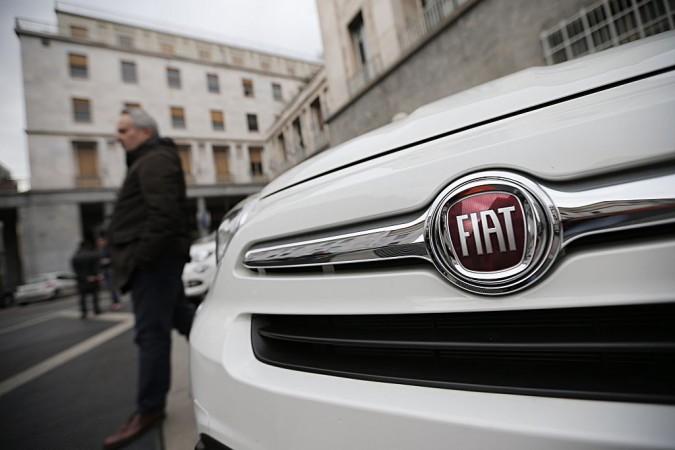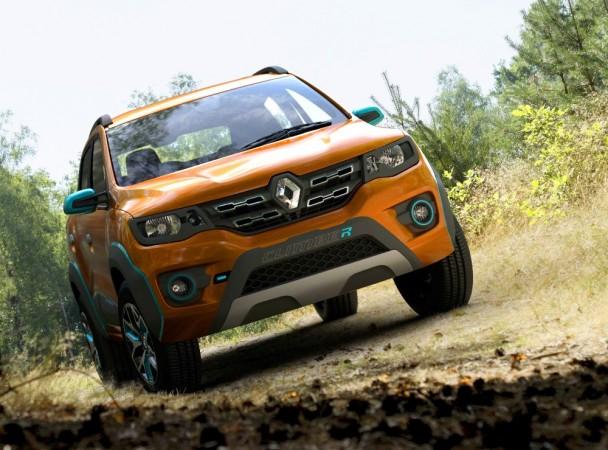
Fiat Chrysler pitched a finely balanced merger of equals to Renault on Monday to tackle the costs of far-reaching technological and regulatory changes by creating the world's third-biggest automaker.
If it goes ahead, the $35 billion-plus tie-up would alter the landscape for rivals including General Motors and Peugeot maker PSA Group, which recently held inconclusive talks with Fiat Chrysler (FCA), and could spur more deals.
Renault said it was studying the proposal from Italian-American FCA with interest, and considered it friendly.
Shares in both companies jumped more than 10 per cent as investors welcomed the prospect of an enlarged business capable of producing more than 8.7 million vehicles a year and aiming for 5 billion euros ($5.6 billion) in annual savings.
It would rank third in the global auto industry behind Japan's Toyota and Germany's Volkswagen.
But analysts also warned of big complications, including Renault's existing alliance with Nissan, the French state's role as Renault's largest shareholder and potential opposition from politicians and workers to any cutbacks.
"The market will be careful with these synergy numbers as much has been promised before and there isn't a single merger of equals that has ever succeeded in autos," Evercore ISI analyst Arndt Ellinghorst said.
With these sensitivities in mind, FCA proposed an all-share merger under a listed Dutch holding company. After a 2.5 billion euro dividend for existing FCA shareholders - giving a big upfront boost to the Agnelli family that controls 29% of FCA - investors in each firm would hold half of the new entity.
The merged group would be chaired by Agnelli family scion John Elkann, sources familiar with the talks told Reuters, while Renault chairman Jean-Dominique Senard would likely become CEO.
Renault's board will hold informal work sessions within days and likely decide next week whether to enter an agreement with FCA to proceed with merger talks, two sources said.
Italian Deputy Prime Minister Matteo Salvini welcomed the merger proposal but said Rome may need to acquire a stake, balancing France's 15% Renault holding - which is set to be diluted to 7.5% of the combined group.
A deal could also have profound repercussions for Renault's 20-year-old alliance with Nissan, already weakened by the crisis surrounding the arrest and ouster of former chairman Carlos Ghosn late last year. The Japanese carmaker has yet to comment on FCA's proposal.
In a letter to employees seen by Reuters, FCA chief executive Mike Manley cautioned a merger with Renault could take more than a year to finalise.
'BOLD DECISIONS'
A deal could help both companies address some of the shortcomings that have led their market valuations to lag major rivals, as well as the shift to electric and self-driving technologies amid tightening emissions regulations.

FCA has a highly profitable business in North America with its RAM trucks and Jeep brand, but lost money last quarter in Europe, where most of its plants are running below 50% capacity and it faces a struggle with new emissions curbs.
Renault, by contrast, was an early mover in electric cars, has relatively fuel-efficient engine technologies and a strong presence in emerging markets, but no U.S. business.
A deal would do little, however, to address both firms' limited presence in China, the world's biggest auto market.
It would also create the challenge of managing a large number of brands, from high-end Maseratis to budget Dacias.
The huge cost of countering disruptive new entrants such as Tesla's electric cars or future autonomous vehicles from Uber and Google has pushed other automakers to collaborate, including Volkswagen and Ford.
FCA-Renault, like almost every possible automotive pairing, has been studied intermittently for years by dealmakers. But the fractious relations between Ghosn and FCA's long-standing boss Sergio Marchionne made constructive talks impossible before Marchionne's sudden death last July, banking sources said.
Renault shares were up 15% to 57.46 euros at 1320 GMT, while FCA's Milan-listed stock was up 11.3% at 12.75 euros. PSA, widely seen as an industry consolidator, was off 3%.
PARIS AND ROME
The French government, Renault's biggest shareholder, supports a merger with FCA in principle but will need to see more details, its main spokeswoman said.
France will be "particularly vigilant regarding employment and industrial footprint," another Paris official said, adding any deal must safeguard Renault's alliance with Nissan, which recently rebuffed a merger proposal from its partner.
Seeking to soothe concerns, FCA said the deal plans "are not predicated on plant closures, but would be achieved through more capital-efficient investment".

The carmakers have given commitments to maintain industrial jobs and sites, one source said - leaving room for white-collar and engineering layoffs as well as some plant downsizing.
Early areas for potential convergence include Renault's next electric car platform being launched at its Douai site in France, the source said, adding all of Renault's board members backed the decision to study FCA's proposal with the exception of the leftist CGT union, which abstained.
In a sign of potential future tensions, the CGT demanded the French state retained a blocking stake in any merged group.
Appealing to Nissan, which is 43.4%-owned by Renault, FCA said the Japanese carmaker would nominate a director to the 11-member board of the new company. Nissan and affiliate Mitsubishi would also benefit from 1 billion euros in cost and investment savings, it added.
Decision-making by such a board is unlikely to be straightforward, some analysts warned.
"We now have the French, the Italians, the Japanese and the Americans needing to find consensus on the board of a Dutch company, where the French state stands to lose its special status," Ellinghorst said.
"This requires quite a bit of creativity."

















![India Auto Roundup: Maruti Suzuki, Mahindra have exciting launches in November [details here]](https://data1.ibtimes.co.in/en/full/805520/india-auto-roundup-maruti-suzuki-mahindra-have-exciting-launches-november-details-here.jpg?w=220&h=135)